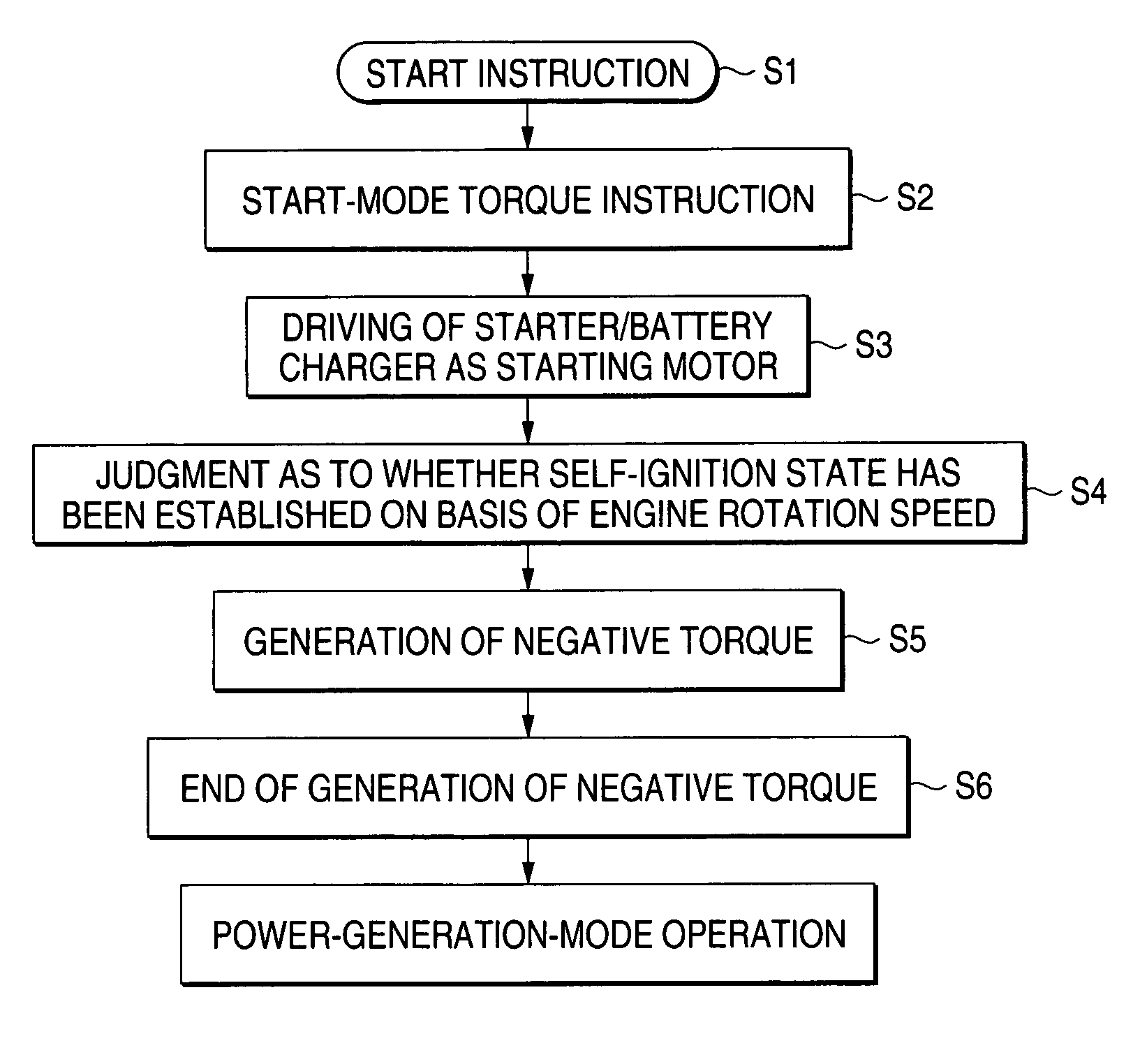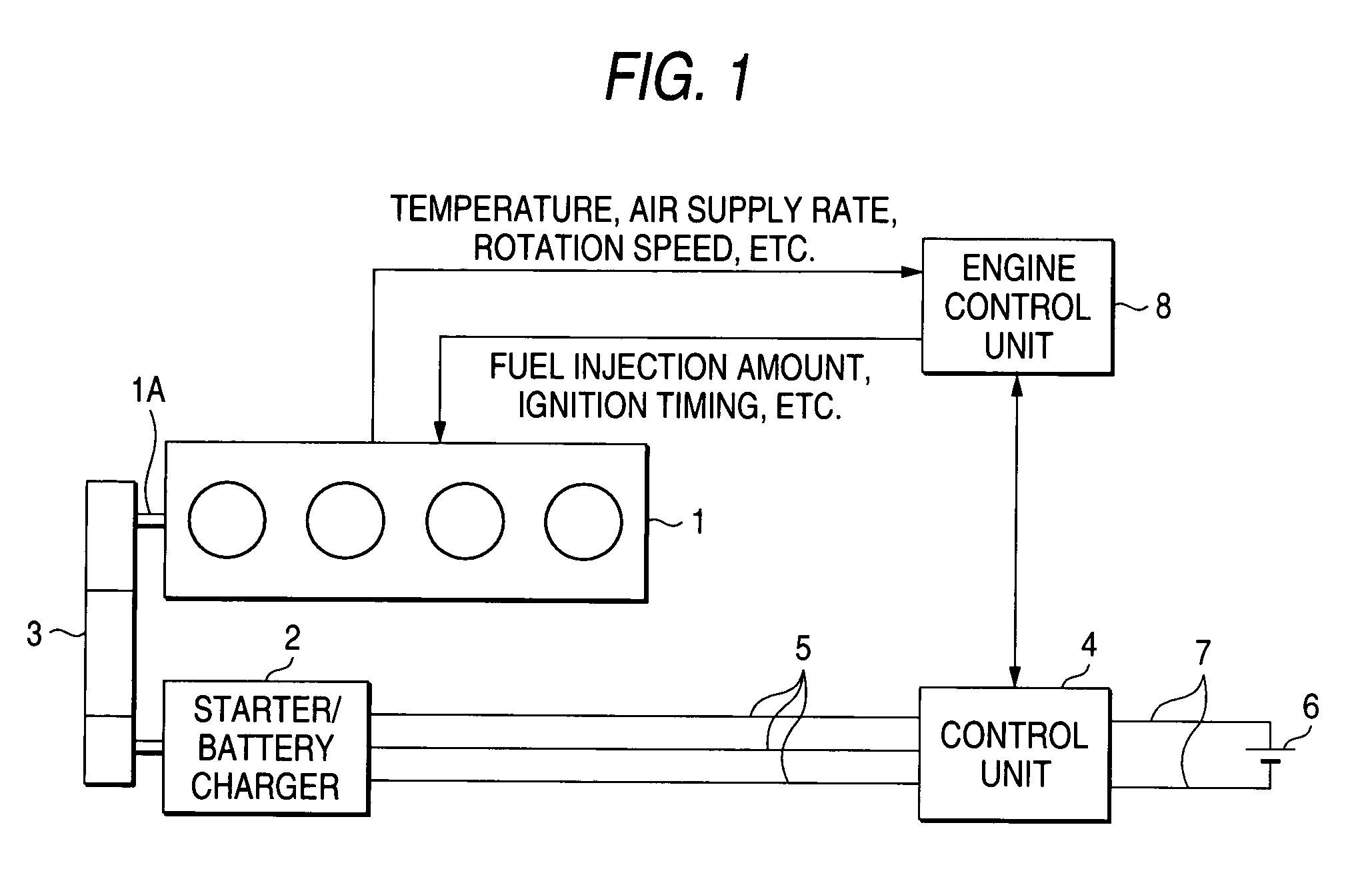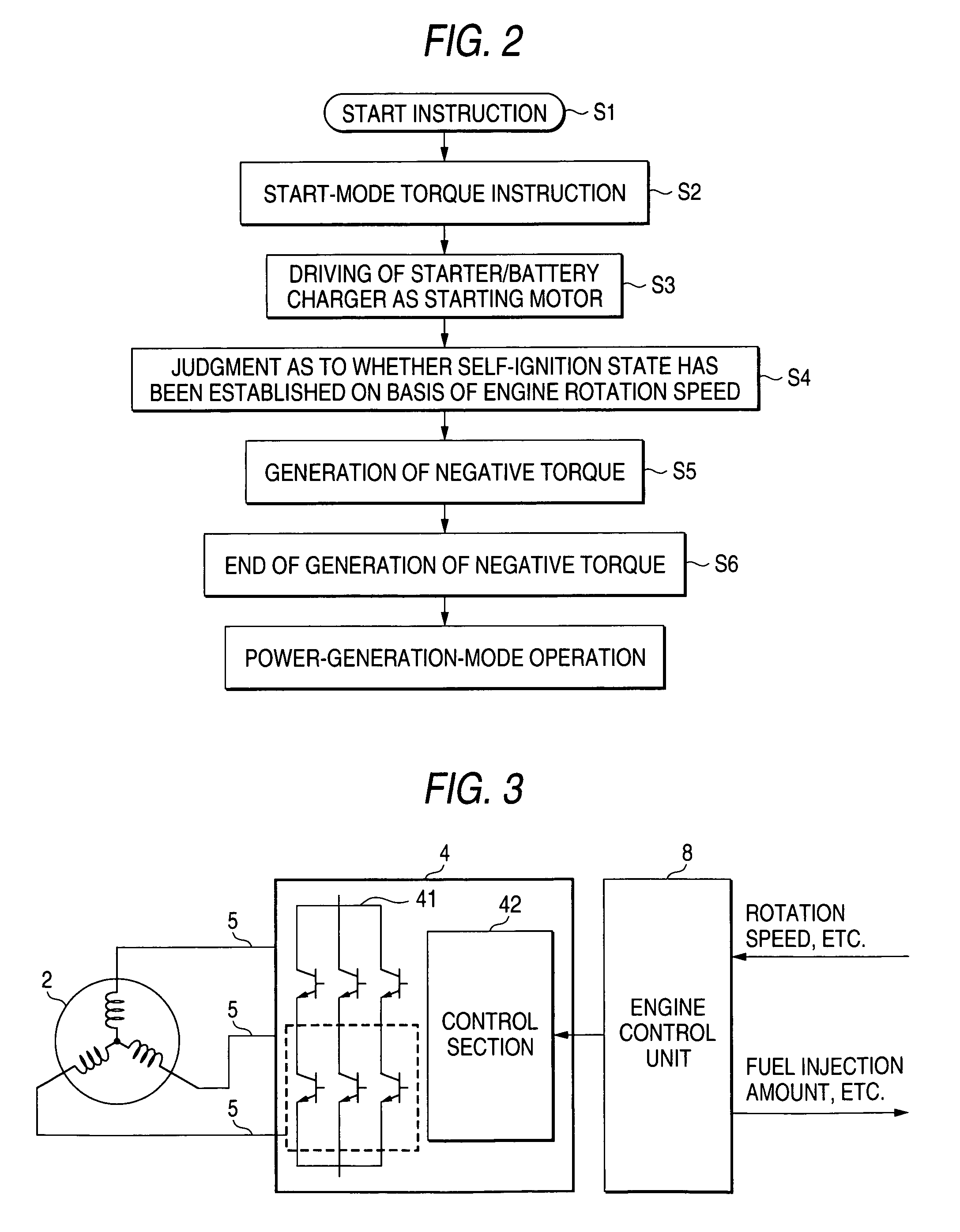Apparatus and method for preventing an overshoot in the rotation speed of an internal-combustion engine
- Summary
- Abstract
- Description
- Claims
- Application Information
AI Technical Summary
Benefits of technology
Problems solved by technology
Method used
Image
Examples
first embodiment
[0024]A first embodiment of the present invention will be described below with reference to FIG. 1. FIG. 1 is a schematic diagram showing a configuration and a method of the first embodiment. As shown in FIG. 1, a starter / battery charger 2 of an internal-combustion engine 1 is a 3-phase synchronous rotary machine, for example, which is coupled to a crank shaft 1A of the engine 1 via a belt 3. Alternatively, the starter / battery charger 2 may be coupled to the crank shaft 1A directly, that is, without intervention of the belt 3.
[0025]A control unit 4 for the starter / battery charger 2 is connected to the starter / battery charger 2 via 3-phase lines 5 that are connected to 3-phase armature coils, and controls the starter / battery charger 2 so that it can generate start drive torque (positive torque) or braking torque (negative torque).
[0026]A battery 6 that is connected to the control unit 4 via power lines 7 serves as a power source for the control unit 4. When the starter / battery charge...
second embodiment
[0032]Next, a second embodiment of the invention will be described with reference to FIG. 3. FIG. 3 is a schematic diagram showing a starter / battery charger and its control unit according to the second embodiment. Components in FIG. 3 having the same or corresponding components in FIG. 1 are given the same reference numerals and will not be described.
[0033]The control unit 4 for the starter / battery charger 2 includes an inverter section 41 consisting of arms of three respective phases in each of which a pair of switching elements are connected to each other in series. The control unit 4 also includes a control section 42 of the inverter section 41. The control unit 4 controls the supply of power to the starter / battery charger 2 on the basis of an instruction from the higher-rank control unit or the engine control unit 8. On the other hand, monitoring the rotation speed of the engine 1, the higher-rank control unit or the engine control unit 8 judges, in the above-described manner, o...
third embodiment
[0035]Next, a third embodiment of the invention will be described with reference to FIG. 4. FIG. 4 is a schematic diagram showing a starter / battery charger and its control unit according to the third embodiment. Components in FIG. 4 having the same or corresponding components in FIG. 3 are given the same reference numerals and will not be described. This embodiment is different from the second embodiment of FIG. 3 in the following points. Switches 91 and 92 are provided between the armature 3-phase lines 5 for the 3-phase armature coils of the starter / battery charger 2. The switches 91 and 92 are closed in response to the engine self-ignition completion signal from the higher-rank control unit or the engine control unit 8 and a 3-phase short-circuited state is established for a prescribed time, during which the starter / battery charger 2 generates negative torque. This makes it possible to properly prevent the overshoot in the rotation speed of the engine 1.
[0036]In this embodiment, ...
PUM
 Login to View More
Login to View More Abstract
Description
Claims
Application Information
 Login to View More
Login to View More - R&D
- Intellectual Property
- Life Sciences
- Materials
- Tech Scout
- Unparalleled Data Quality
- Higher Quality Content
- 60% Fewer Hallucinations
Browse by: Latest US Patents, China's latest patents, Technical Efficacy Thesaurus, Application Domain, Technology Topic, Popular Technical Reports.
© 2025 PatSnap. All rights reserved.Legal|Privacy policy|Modern Slavery Act Transparency Statement|Sitemap|About US| Contact US: help@patsnap.com



